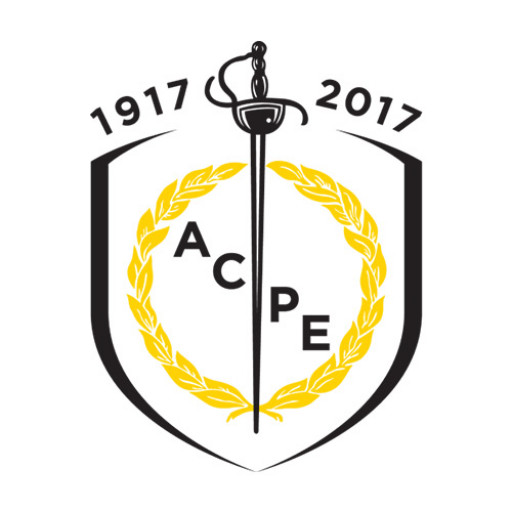The Bachelor of Education (Secondary) provides students with the capability to engage in innovative approaches to teaching and learning in a secondary school, in addition to the power to think the societal, ethical and professional expectations which the rise of technology brings into the classroom and the essence of learning. The level combines general education studies, teaching methods (curriculum studies), and expert experience. Students might opt to specialise in at least two teaching disciplines. Furthermore, students are given three professional placements at a secondary school, a total of 80 days. Because of this, pupils are not just qualified to teach Years 7 to 12 but additionally prepared as future educational leaders and innovators.
Graduates will be qualified for provisional registration by the Victorian Institute of Teaching (VIT) as secondary instructors, and by mutual agreements with teacher education governments in other states, they are eligible for provisional enrollment in most Australian states and territories.
- Year 12 or equivalent: VCE prerequisites: Units 3 and 4: a minimum study score of 25 in English (or equivalent) or 30 in English (EAL)
- And Units 4 and 3: a minimum study score of 20 in virtually any Mathematics. All candidates should sit and achieve an appropriate standard on a variety test used to assess an applicant's non-academic personal and professional attributes. Applicants must move from another preliminary teacher education class has to disclose all LANTITE attempts.All registered students must keep a present Working with Children Check (from the right State Authority). A Police Check may also be required with a school before to a positioning. All applicants (both conventional entry and non-year 1 2 entry) must sit down the CASPer test.
The financing options for the Education - Secondary programs at Swinburne University of Technology are designed to support students in managing their tuition fees and associated costs throughout their study period. Domestic students primarily utilize government assistance schemes such as the Commonwealth Supported Place (CSP), which significantly reduces the financial burden by subsidizing the cost of tuition. Eligible students can also access HELP (Higher Education Loan Program) loans, including HECS-HELP, to defer the payment of tuition fees until their income reaches a specified threshold. This allows students to attend university without the immediate need to pay their fees upfront, thereby making higher education more accessible.
International students enrolled in the Education - Secondary programs are responsible for paying full tuition fees, which vary depending on the specific course and year of enrollment. Swinburne provides detailed fee structures on its official website, along with options for installment payments, which enable students to spread the cost over a series of payments, easing financial pressure. Additionally, international students are encouraged to explore scholarships and grants available through the university and external organizations, which can provide significant financial assistance based on academic merit, leadership, or specific criteria related to the student’s background.
Students are also advised to consider private financial services and educational loans if additional funding is required. Swinburne emphasizes transparency regarding its fee schedule and financing options, providing comprehensive guidance for prospective and current students to make informed financial decisions. Moreover, scholarships at Swinburne range from general excellence awards to specialized scholarships aimed at supporting students from diverse backgrounds or specific career interests within education. The university’s financial support services and student advisors are available to assist with planning and applying for various funding opportunities.
International students are encouraged to check their eligibility for any applicable scholarships or financial aid schemes offered by their home countries or external organizations, which can help offset tuition costs. Swinburne also regularly reviews its fee structures and financing options to ensure they remain competitive and aligned with the needs of its student community. Overall, the university strives to provide flexible, accessible, and comprehensive financing solutions to support students throughout their educational journey in the Education - Secondary programmes.
The Education - Secondary program at Swinburne University of Technology is designed to prepare students for a career as a secondary school teacher, focusing on teaching methods, curriculum development, and educational psychology. This program aims to equip graduates with the knowledge and skills necessary to teach students in Years 7 to 12 across a range of subject areas. The curriculum integrates theoretical foundations of education with practical teaching experiences, enabling students to develop effective instructional strategies and classroom management skills. Throughout the program, students engage in coursework that covers pedagogical theory, assessment techniques, inclusive education practices, and the use of technology in the classroom.
Students undertake a series of practicums or teaching placements in secondary schools, which are an integral part of the program, providing real-world teaching experience under supervision. These placements allow students to apply their academic knowledge in diverse educational settings, develop their professional competencies, and understand the needs of diverse learners. The program also emphasizes the importance of lifelong learning, reflective practice, and professional ethics in education.
Graduates of the program are eligible for registration as secondary school teachers with the Victorian Institute of Teaching (VIT) or equivalent authorities in other regions, depending on further accreditation. The program prepares students for a variety of employment opportunities within secondary education sectors, including public and private schools, curriculum development organizations, and educational policy agencies. Through a combination of theoretical and practical components, the Education - Secondary program at Swinburne aims to develop competent, innovative, and reflective educators ready to contribute positively to the educational landscape.







